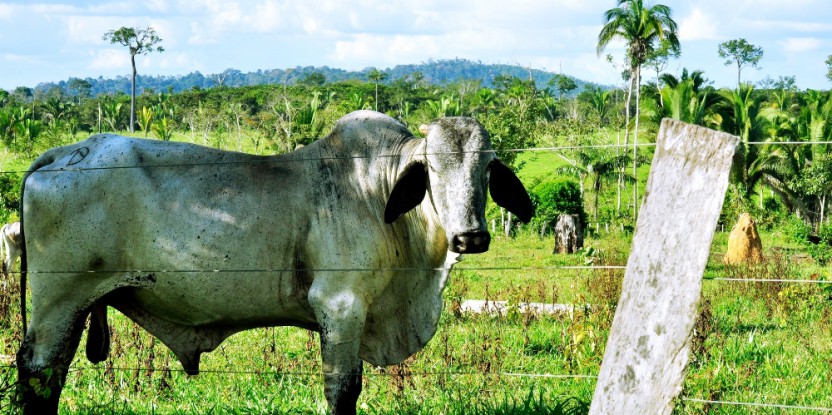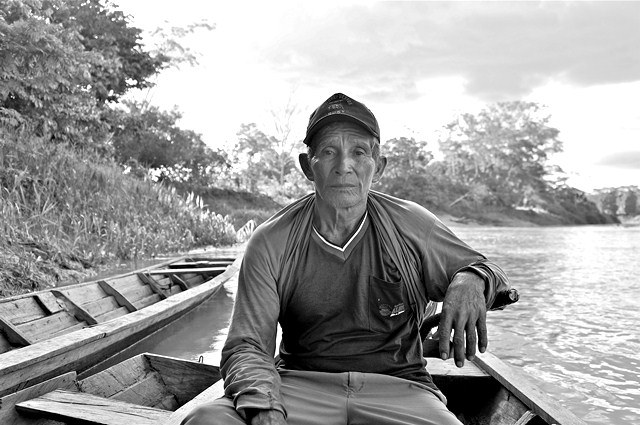
Farming and ranching remain the main drivers of deforestation in Brazil, a new study from the Center for International Forestry Research (CIFOR) has found.
But any new government policy to combat the problem may be undermined by lack of coordination and communication, says one of the study’s authors, Monica Di Gregorio, a senior CIFOR associate.
Sharing information and coordinating efforts are crucial for implementing policies to reduce greenhouse gas emissions from deforestation and forest degradation (REDD+), the study claims.
So, to map information-sharing and collaboration networks in Brazil, researchers used questionnaires and in-depth interviews with 56 representatives of government agencies, non-government organizations (NGOs), civil society organizations, research institutions private-sector organizations and donors.
The study found that coordination among those groups is inconsistent.
Most critically, the private sector—one of the main forces behind deforestation and forest degradation—remains on the periphery of the main information and policy-making networks on REDD+.
Di Gregorio says that while Brazil has a well developed formal structure of inter-ministerial committees trying to bring together different sectors to develop and coordinate REDD+ policies, “They’re not very proactive in reaching out to broader networks of actors interested in REDD+.”
“And that includes the private sector and non-governmental organizations. That’s a missed opportunity.”
The researchers also looked at whether the groups went beyond sharing information and actually worked together toward a common goal.
NGOs were most involved in joint efforts, according to the findings, while government agencies shared information, but did not collaborate as much with non-governmental groups.
The lack of coordination between civil society, the private sector and the government affects REDD+ governance and outcomes
“Non-governmental organizations are leading both the design and implementation of REDD+,” says CIFOR consultant Maria Fernanda Gebara based at the London School of Economics.
“But the lack of coordination between civil society, the private sector and the government affects REDD+ governance and outcomes.”
ECONOMICS, FORESTS, CLIMATE
Slowing deforestation without compromising the country’s development goals is one of the greatest challenges for policy makers, according to three-quarters of the people interviewed for the study.
“There is a clear relationship between economic growth, the drivers of deforestation and climate change impacts,” says lead author, Leandra Fatorelli, a CIFOR consultant who works at the University of Leeds.
The interviews also exposed concerns about the need for more effective coordination, contradictions between forestry policies and other policies, lack of law enforcement, information about land tenure, knowledge of REDD+ and the need for consensus about forest management and land-use planning.
At the national level, the Permanent Inter-ministerial Working Group for Reducing Legal Amazon Deforestation Rates (GPTI) and the Inter-Ministerial Committee on Climate Change (CIM) have been the key coordinating bodies involved in developing Brazil’s national REDD+ strategy, but they have met infrequently in the past years, according to the study.
Brazil’s Ministry of Foreign Relations leads the country’s participation in international negotiations, while the Ministry of Environment oversees national policy. But they are disconnected from the collaboration network, the study found.
In the information-sharing network, the Ministry of Environment and the state governments of Acre and Amazonas were the best-connected government entities, according to the researchers’ mapping.
Acre and Amazonas state governments led policy decisions on deforestation, climate change, conservation and ecosystem services investing in coordinating with federal government, Monica Di Gregorio says.
Progress and coordination efforts slowed down around 2012 and even further with the national elections in 2014, which brought major changes in federal leadership.
In addition, some processes necessary for implementing REDD+, such as organizing land tenure and registering property, are taking longer than expected.
It is really important to start integrating measures for reducing deforestation and degradation with measures for agriculture and livestock production
The national REDD+ strategy, which is in draft form, sets goals for coordination and governance, but lacks detail about how those objectives will be met, they authors say.
Support for the REDD+ strategy may increase with the approach of the December 2015 climate summit in Paris where government negotiators are expected to agree on a new international treaty to reduce greenhouse gas emissions.
Guidelines for REDD+ were finalized at a pre-summit meeting in Bonn, Germany, in June 2015.
“I think this year there may be a lot of international pressure because of the Paris summit,” Maria Fernanda Gebara says.
“There is also a lot of interest in taking a landscape approach and moving from a sector-oriented policy to an integrated one. It is really important to start integrating measures for reducing deforestation and degradation with measures for agriculture and livestock production.”
Gebara also underlines the point about private-sector actors as the main drivers of deforestation.
“They have more resources,” she says. “It’s important to create incentives or disincentives to encourage them to produce in a more sustainable way.”
The key, she says, is how to balance forest policy with other interests, such as food security.
“The fundamental question for all REDD+ countries is how to move away from business as usual and ensure sustainability,” she says. “That is the main challenge.”
For more information about CIFOR’s work on REDD+ in Brazil, please contact Leandra Fatorelli L.Fatorelli@leeds.ac.uk, Monica Di Gregorio M.DiGregorio@leeds.ac.uk, or Maria Fernanda Gebara mfgebara@gmail.com
This research was funded by the Norwegian Agency for Development Cooperation, the Australian Agency for International Development, the United Kingdom’s Department for International Development, and the European Commission.
We want you to share Forests News content, which is licensed under Creative Commons Attribution-NonCommercial-ShareAlike 4.0 International (CC BY-NC-SA 4.0). This means you are free to redistribute our material for non-commercial purposes. All we ask is that you give Forests News appropriate credit and link to the original Forests News content, indicate if changes were made, and distribute your contributions under the same Creative Commons license. You must notify Forests News if you repost, reprint or reuse our materials by contacting forestsnews@cifor-icraf.org.
